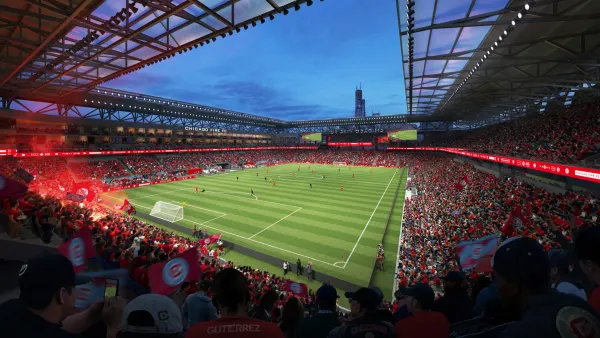Dive Brief:
- A partial consent decree requires Baltimore to spend at least $44 million over four years to make thousands of curb ramps and tens of thousands of square feet of sidewalks accessible to people who use wheelchairs and mobility devices.
- The March 31 agreement also requires Baltimore to implement new programs to make its public rights of way comply with the Americans with Disabilities Act, including a plan to alleviate sidewalk obstructions and improvements to the city’s 311 system allowing reports about inaccessible intersections and sidewalks.
- The decree, resulting from a 2021 class action lawsuit, makes Baltimore the latest in a string of cities that have been compelled to make substantial financial commitments to address barriers to ADA compliance.
Dive Insight:
Baltimore follows Boston, Philadelphia, New York City and Los Angeles, in reaching court-enforced agreements that require them to spend tens of millions to billions of dollars making sidewalks, curb ramps and other public rights of way accessible to people with disabilities.
As part of the agreement, Baltimore must spend between $44 million and $50 million installing and remediating existing curb ramps and pedestrian walkways by July 2028, according to a press release from Disability Rights Advocates, which represented the plaintiffs in the suit.
Baltimore is also required, among a host of other actions, to implement plans to:
- Inspect and document accessibility of its pedestrian walkways every 10 years.
- List obstructions along its pedestrian walkways and come up with a plan to address them.
- Keep pedestrian walkways clear of vegetation and overgrowth.
- Remove or prune obstructive street trees.
- Notify all commercial and residential property owners about their obligation to remediate sidewalk obstructions next to their properties.
“We’re hoping that folks with mobility disabilities will now have the ability, the freedom to go out of their homes, traverse the city, whatever it is they need to or want to do, and participate in their communities,” said Madeleine Reichman, a senior staff attorney for Disability Rights Advocates. The group, along with Disability Rights Maryland and two law firms, filed the class action lawsuit in the U.S. District Court of Maryland for three Baltimore residents with mobility disabilities and a Baltimore County independent living center.
Many sidewalks throughout Baltimore do not have curb ramps that transition to the street or the ground at the end of the corner, Reichman said. Sidewalks also often have steep level changes, cracks and obstructions from trees or street signs, she said.
“All of these things make it difficult to maneuver if you’re using a wheelchair or another mobility aid,” Reichman said. “Without the remediation that the partial consent decree mandates, we see that leads to a lot of injuries.”
Baltimore’s “inaccessible and dangerous” pedestrian grid forces people with disabilities to stay inside their homes because they’re “afraid to go outside and participate in their communities,” Reichman said.
The court-enforced agreement is considered a partial consent decree because the two sides will still negotiate a longer-term plan to bring the remaining sidewalks and curb ramps into ADA compliance.










